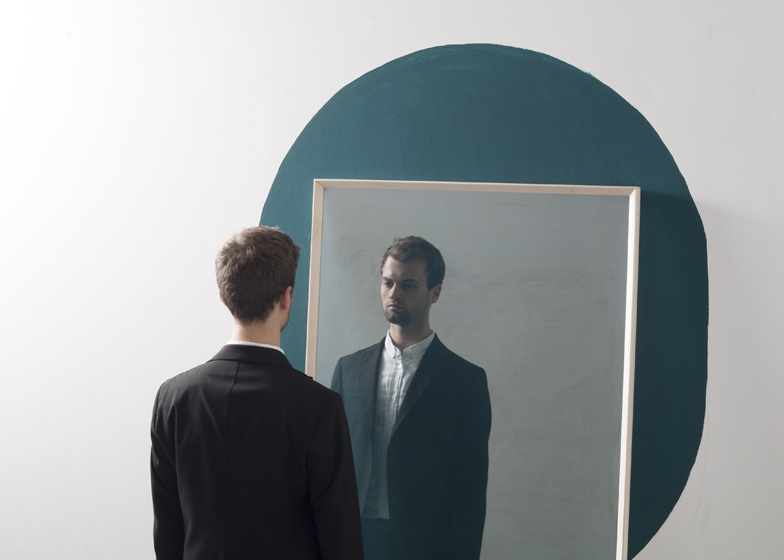French designer Claire Lavabre has made a mirror that only works when it's placed in front of a dark shape painted on the wall.
A partial reflection is visible in the bevelled frame if it is placed in front of a white surface but the reflection becomes clear when the glass overlaps with dark matte paint.
Claire Lavabre used specially treated ultra-reflective glass that also retains high transparency. The effect is an enhanced version of looking at your reflection in a darkened window on a sunny day, or from a lit room when it's dark outside.
Lavabre says she wanted to explore surfaces that are both reflective and transparent, overlapping images to create new perspectives. She's proposed a series of six different geometric shapes and colours to be used with the frame. "In this way the mirror can be appropriated - people can choose the colour they prefer and it can adapt to different places," Lavabre told Dezeen.
The project was developed during Lavabre's studies at École Nationale Supérieure de Création Industrielle (ENSCI) in Paris, where she graduated in December last year. It will be shown at the Design Parade 8 festival as part of an exhibition of work by ten young designers at Villa Noailles in Hyères, France, from 5 to 7 July.
New York designer Joe Doucet recently created a mirror as a tribute to victims of Hurricane Sandy that gives the impression the viewer is partially submerged, while Canadian studio The Practice of Everyday Design has designed a mirror that displays ghostly reflections on its buffed stainless steel surface – see more mirrors on Dezeen.
Here's a short project description from the designer:
Reflet
In this project I had a particular interest in reflections. Reflections appear on surfaces that are transparent and reflective at the same time. A tree reflects in a lake, in a train window. I like the overlaying of different images. When we look through the surface it is transparent. The surface tends to disappear like glass. On the contrary, when we look at a reflection on glass, this surface exists. It finds a presence by sending us our own image.
A geometric shape is drawn on a wall with paint. The frame of the reflective surface is leant on the wall. When this geometric shape and the reflective surface intersect, the reflection increases and this installation finds use. The geometric shape’s colours and shapes are numerous. Reflection system: wood frame, glass, paint. Variable shape and size.

